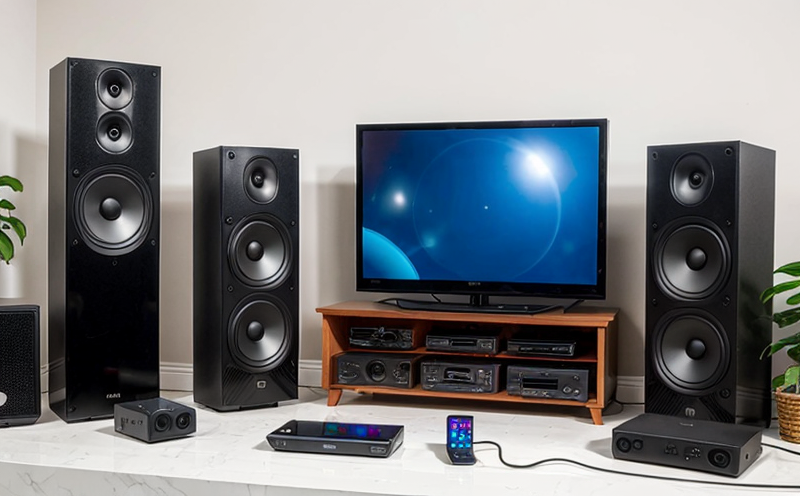IEEE 2030 Interoperability Testing for Consumer Energy Devices
The IEEE P2030 Standard for Smart Energy Plant defines a framework to achieve interoperable and efficient energy usage in buildings. This standard is critical for the design, construction, operation, and maintenance of smart energy systems. Our specialized service focuses on ensuring that consumer electronics and audio-visual devices comply with this standard through thorough interoperability testing.
The IEEE P2030 standard encompasses a wide range of functionalities including but not limited to demand response, power factor correction, and energy management. By conducting rigorous tests as per this standard, we ensure that the products you develop or procure meet high performance standards in terms of energy efficiency and environmental friendliness.
Our team understands that achieving compliance with IEEE P2030 is crucial for manufacturers aiming to enter competitive markets where sustainability and efficiency are key differentiators. We use state-of-the-art facilities equipped with specialized software tools designed specifically for interpreting and validating the requirements laid out in this standard.
The testing process involves several critical steps starting from initial assessment of the product's design against IEEE P2030 criteria, followed by detailed simulations under various operating conditions to observe how well each component interacts within a broader system. Post-testing analysis helps identify any discrepancies or areas needing improvement before final certification can be issued.
Our approach ensures not only compliance with current regulations but also future-proofing your products against upcoming changes in industry standards. With our expertise, you gain confidence that every aspect of your product will function optimally when integrated into larger networks.
Applied Standards
The IEEE P2030 standard provides a comprehensive framework for achieving interoperability between different components within an energy management system. It covers various aspects such as communication protocols, data formats, and control strategies which are essential for seamless operation of smart devices.
- IEEE 1547 - Interconnection Requirements for Distributed Resources
- ANSI/ASHRAE/IESNA 90.1 - Energy-Efficient Design of Buildings Except Low-Rise Residential Buildings
- ISO/IEC 27001 - Information Technology Security Controls
These standards complement IEEE P2030 by addressing specific areas like secure data exchange, efficient energy use in buildings, and information technology security. Together they form a robust ecosystem supporting the broader goals of sustainable development.
Scope and Methodology
Our scope includes conducting comprehensive interoperability tests on consumer electronics and audio-visual devices to ensure compliance with IEEE P2030 standards. This involves evaluating products at different stages of their lifecycle—from design phase right through installation, commissioning, and ongoing maintenance.
The methodology begins with a thorough review of the product specifications against IEEE P2030 requirements. Next comes detailed simulation exercises aimed at understanding how individual components interact within a larger system. Finally, we perform real-world tests under typical operating conditions to assess actual performance metrics such as energy savings achieved, time taken for response actions during demand events, etc.
Our testing procedures are aligned with international best practices defined in ISO/IEC 17025:2017 which ensures impartiality and accuracy of our results. By following these stringent guidelines, we provide reliable evidence supporting the claims made about your product’s compliance status.
Use Cases and Application Examples
Smart Thermostats: Ensuring seamless integration between thermostat units and central heating/cooling systems to optimize energy consumption during peak hours.
Home Automation Systems: Verifying that all components from lighting fixtures to appliance controllers communicate effectively across networks for enhanced user experience and reduced costs.
In addition to these examples, our services extend to other areas where interoperability plays a crucial role like solar panel installations, battery storage systems, electric vehicle chargers, among others. Each case study highlights unique challenges faced during testing along with solutions implemented successfully ensuring long-term viability of deployed projects.





